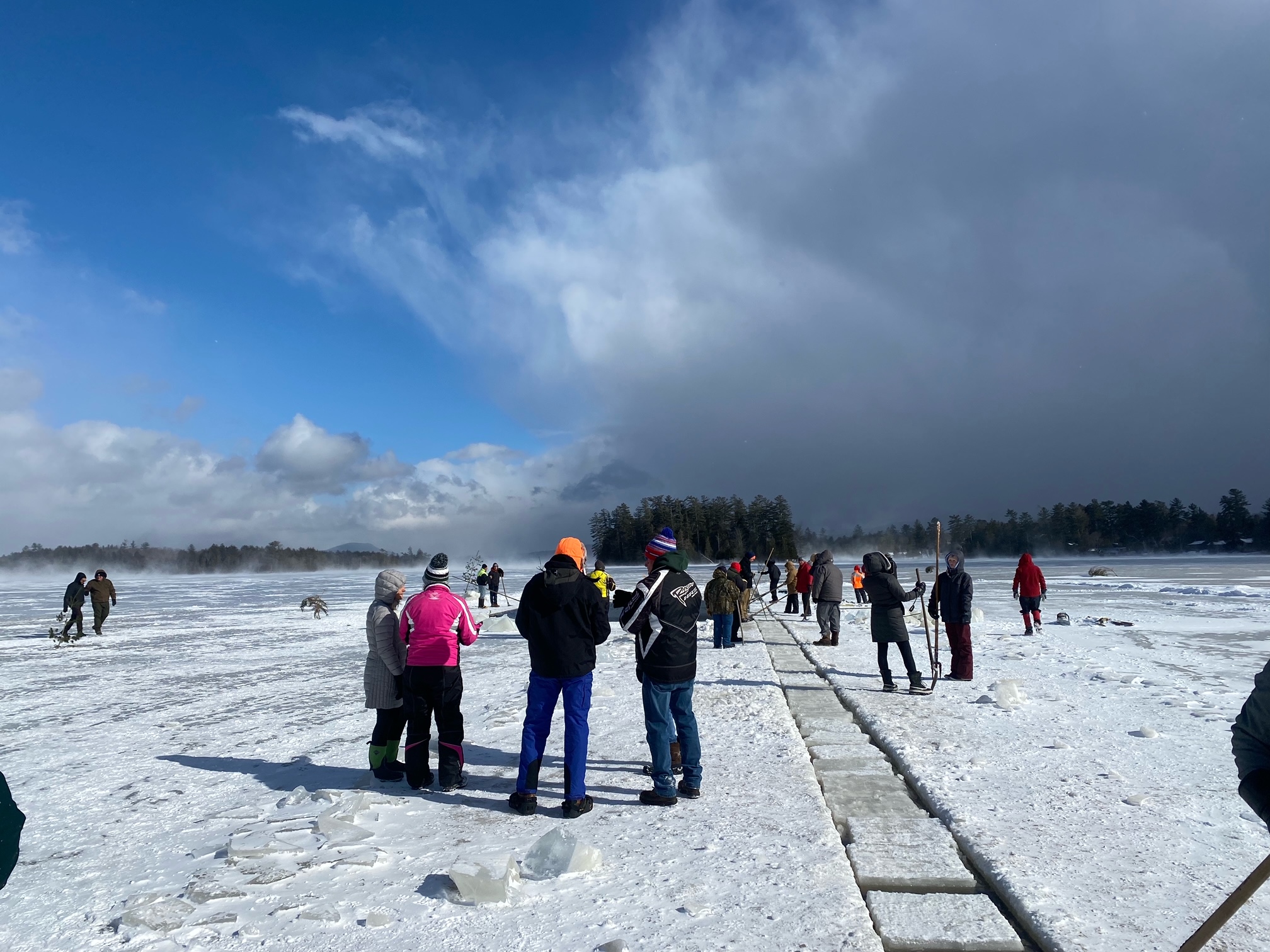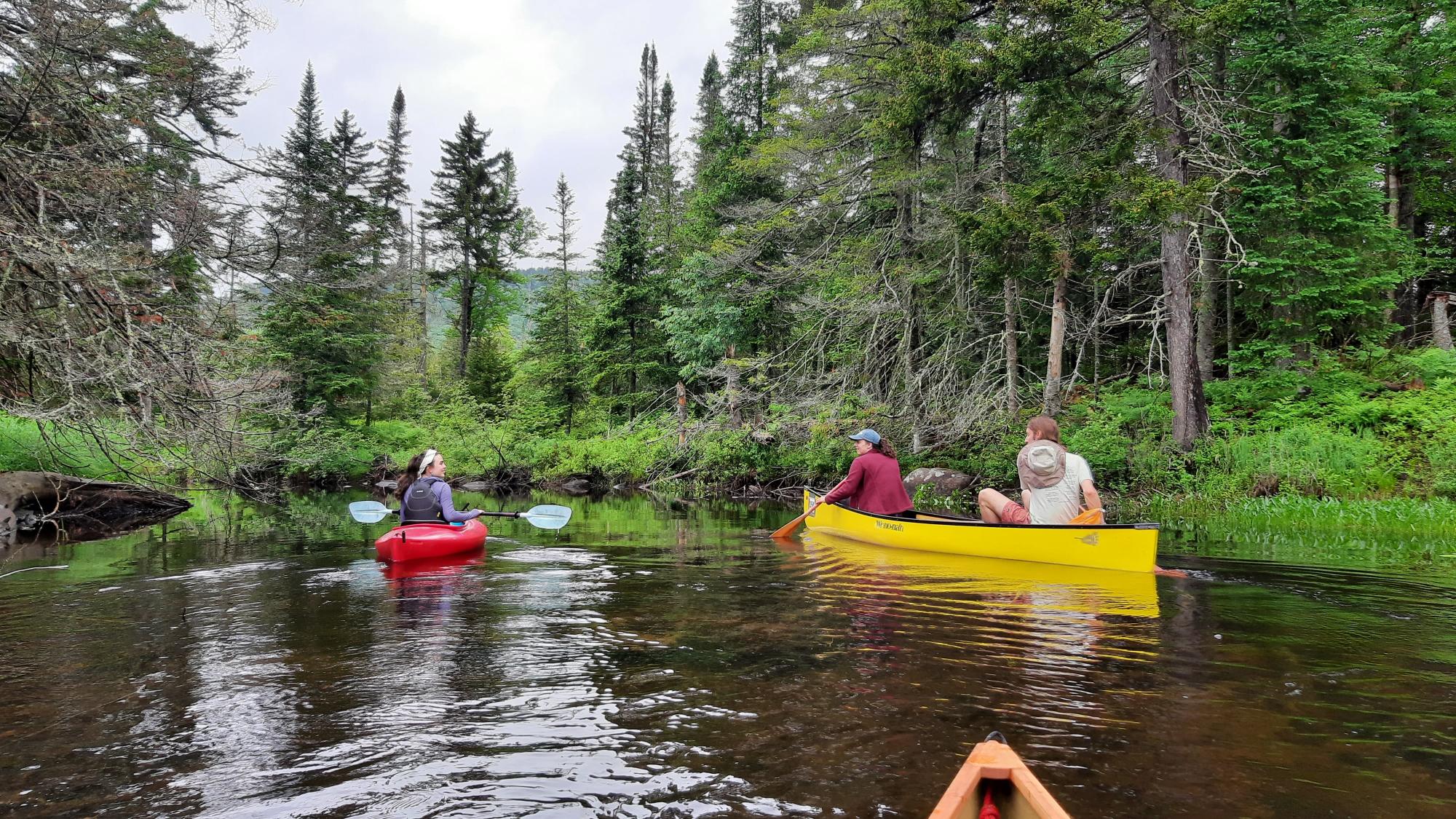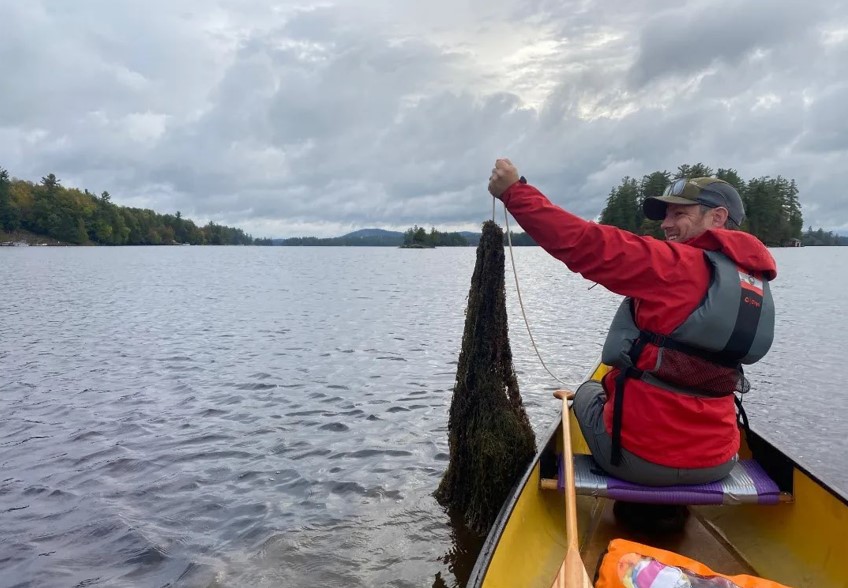
A Generational Commitment to Protecting Nature and Community
By Marion Goethals, Raquette Lake Preservation Foundation, Tuesday, August 13, 2024
Editor's note: This is the first in a series of guest blogs by the lake associations for Raquette Lake, Long Lake and Blue Mountain Lake. This series is part of the Headwaters Campaign, a joint effort of the lake associations, the Adirondack Council and the Northern Forest Canoe Trail.
“If we want anything to eat around here, somebody better go to the store.”
For my great-grandparents and grandparents, clergy for the chapel on St. Hubert’s Isle, going to the village meant getting in the boat and paddling, or later motoring. Our present-day family does the same thing in the same way going to the same store: getting in a boat and heading over to town. Happily, we have an electric range in contrast to the wood cookstove of my memory.
Raquette Lake is big and forested, the largest natural lake in New York’s vast Adirondack Park. Eighty percent of the shoreline is “forever wild.” The lake’s out-of-the-way location, its situation within the Forest Preserve, and the very unusual case of having no roads to most of the shoreline has helped to protect its natural environment to some extent, but at the same time has presented multiple challenges to sustainable and vigorous community life. People at Raquette participate avidly in the 21st century as best as resources allow and are deeply committed to protecting the lake’s nature — the health of the waters, fish, and forests.
 Like all unique geographical places, Raquette Lake has a unique social history. While Raquette gave birth to several extraordinary “rustic” estates in the 1890’s Gilded Age and is once again a prized second home venue. There are very few historical properties open to the public in the Park. Raquette’s Great Camp Sagamore and St. Williams on Long Point are among them. SUNY Cortland has put its ‘great camp’ to use as an educational site, where students experience field work and a no-roads existence.
Like all unique geographical places, Raquette Lake has a unique social history. While Raquette gave birth to several extraordinary “rustic” estates in the 1890’s Gilded Age and is once again a prized second home venue. There are very few historical properties open to the public in the Park. Raquette’s Great Camp Sagamore and St. Williams on Long Point are among them. SUNY Cortland has put its ‘great camp’ to use as an educational site, where students experience field work and a no-roads existence.
The year-round population of Raquette Lake numbers about 117, second home families about 1000. The hamlet supports a library, diner, post office and store. The school has closed. Many families have been in residence for multiple generations or, when forced to leave, have kept their historical connections strong from far away – as mine has. In season, two long-established children’s sleep-away camps still survive despite the general failure of similar businesses throughout the northeast. The state Department of Environmental Conservation’s Golden Beach campground and many boat-access-only campgrounds and sites are valued by campers – transitional residents – from all over. Marinas and a cruise-and-dine boat serve a considerable number of seasonal visitors.
Various challenges provoked the formation in the 1990s of this organization, now known as the Raquette Lake Preservation Foundation (RLPF). Community-wide obstacles faced over time include difficult work on title and deed disputes with the state, right to electricity and telephone via underwater cables, dysfunctional internet access, clean water, public facilities, excessive noise abatement, help for the volunteer fire department, and even trash transfer. Most recently, RLPF has joined with local citizens to oppose the installation of a lithium battery farm in the village as proposed.
 But, always central to its mission, the RLPF has long established a commitment to the environment, specifically to protecting the health of the Raquette Lake waters. Its diverse habitats support beaver dammed marshes and inlets, two rivers (one filling and one emptying the lake), cool depths supporting threatened trout, sandy coves, and rocky outcroppings. Worried about zebra mussels and other ‘travelers’ colonizing nearby lakes, aquatic invasive species were early identified as the imminent threat calling for action. Consequently, RLPF established one of the Park’s earliest programs of volunteer boat stewards to educate and help boaters at launch sites clean their boats.
But, always central to its mission, the RLPF has long established a commitment to the environment, specifically to protecting the health of the Raquette Lake waters. Its diverse habitats support beaver dammed marshes and inlets, two rivers (one filling and one emptying the lake), cool depths supporting threatened trout, sandy coves, and rocky outcroppings. Worried about zebra mussels and other ‘travelers’ colonizing nearby lakes, aquatic invasive species were early identified as the imminent threat calling for action. Consequently, RLPF established one of the Park’s earliest programs of volunteer boat stewards to educate and help boaters at launch sites clean their boats.
RLPF also began partnering with many environmental entities and government agencies; at last count it had 14 affiliated partners. Our loon-friendly lake certification comes through such an alliance. But the myriad of overlapping state agencies and non-governmental environmental action groups that care about the health of the Park as a whole, do not have Raquette Lake as their central focus. RLPF does. Regular shoreline surveys, water testing, and education efforts were instituted early on and remain active. RLPF, in planning for the future, completed a Lake Management Plan for Aquatic Species with DEC funding in 2021.
 Looking forward, the RLPF, in concert with its climate aware membership, anticipates more threats to the health of its unique geographical region and the social fabric. To extend its commitment to a healthy environment and a vibrant community, RLPF has joined in the Raquette Headwaters effort with the Northern Forest Canoe Trail, the Long Lake Association, the Blue Mountain Lake Association, and the Adirondack Council. These waters are at the head of the all-important St. Lawrence River watershed.
Looking forward, the RLPF, in concert with its climate aware membership, anticipates more threats to the health of its unique geographical region and the social fabric. To extend its commitment to a healthy environment and a vibrant community, RLPF has joined in the Raquette Headwaters effort with the Northern Forest Canoe Trail, the Long Lake Association, the Blue Mountain Lake Association, and the Adirondack Council. These waters are at the head of the all-important St. Lawrence River watershed.
All who visit and stay at Raquette cherish this lake, as do my grandchildren, for us the sixth generation on Raquette. RLPF seeks to support Raquette Lake’s loyal communities by keeping watch over the local environment and adapting actions as threats evolve. The next step is to gather a coalition of all voices to empower protection of the headwaters of the Raquette River. The waters we send downriver will be pure so the next generations will want to celebrate the lake as our forebears did by getting in the boat to ‘go to town.’




